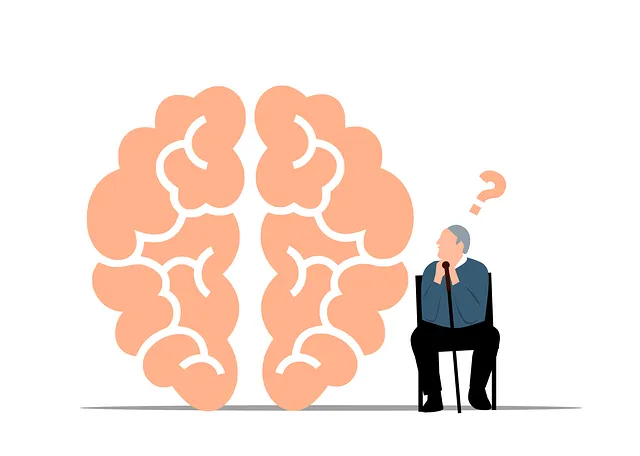Lone Tree Kaiser Permanente is revolutionizing mental wellness accessibility with innovative coaching programs tailored to diverse needs, especially among younger generations. Using evidence-based practices like CBT and stress management, these programs promote immediate well-being while building long-term emotional resilience. Customized interventions for adolescents, working adults, and older adults ensure optimal support. By integrating mindfulness, cognitive reframing, exercise, sleep, hobbies, and social connections, coaches empower individuals to maintain mental wellness. Continuous improvement is driven by multifaceted evaluation, combining quantitative metrics with client feedback to refine coaching methods and curriculum content.
Mental wellness coaching programs are gaining prominence, especially within healthcare institutions like Lone Tree Kaiser Permanente. This article delves into the crucial development of such programs, addressing the growing need for mental health support. We explore strategies for designing effective initiatives, implementation techniques to maximize impact, and key metrics for measuring success. By understanding these components, Lone Tree Kaiser Permanente can enhance its mental health offerings, fostering a more holistic and supportive environment for patients’ overall well-being.
- Understanding the Need for Mental Wellness Coaching Programs
- Designing Effective Lone Tree Kaiser Permanente Mental Health Initiatives
- Implementation Strategies for Maximizing Impact
- Measuring Success and Continuous Improvement in Mental Wellness Coaching
Understanding the Need for Mental Wellness Coaching Programs

In today’s fast-paced world, the importance of mental wellness cannot be overstated, especially in areas like Lone Tree where Kaiser Permanente has been at the forefront of mental health initiatives. The demand for accessible and personalized support has led to a growing recognition of Mental Wellness Coaching Programs as effective tools to foster resilience and improve overall well-being. These programs cater to individuals seeking guidance and strategies to manage stress, anxiety, or simply enhance their emotional balance.
The need for such initiatives is further highlighted by the increasing rates of mental health challenges, especially among younger generations. Lone Tree Kaiser Permanente’s Mental Health services have been instrumental in raising awareness and offering essential Crisis Intervention Guidance. However, coaching programs take this a step further by providing tailored support, helping individuals develop coping mechanisms, and promoting self-care practices. With the rise of remote work and digital connectivity, these programs can now reach a broader audience, making mental wellness accessible to many more people.
Designing Effective Lone Tree Kaiser Permanente Mental Health Initiatives

In the context of Lone Tree Kaiser Permanente mental health initiatives, designing effective programs involves a deep understanding of the community’s unique needs and challenges. By focusing on evidence-based practices, these initiatives can significantly impact individual well-being. Incorporating strategies like cognitive-behavioral therapy (CBT) for depression prevention and stress management techniques to combat burnout is crucial. These approaches not only target immediate concerns but also foster long-term emotional healing processes.
Lone Tree Kaiser Permanente’s mental health programs should strive to create inclusive environments that encourage open dialogue and build resilience among participants. Customizing interventions to cater to diverse populations ensures that everyone receives the support they need. Whether targeting adolescents, working adults, or older adults, each group has distinct requirements, necessitating tailored strategies for optimal results.
Implementation Strategies for Maximizing Impact

Implementing effective mental wellness coaching programs requires a strategic approach to maximize their impact, particularly in settings like Lone Tree Kaiser Permanente. One key strategy is to integrate resilience-building techniques into the coaching curriculum. By teaching clients skills to bounce back from setbacks and navigate stress, coaches can empower individuals to maintain mental wellness even amidst challenges. This could involve incorporating mindfulness exercises, cognitive reframing techniques, and positive self-talk strategies.
Additionally, fostering self-care routine development for better mental health is crucial. Coaches should guide clients in identifying activities that nourish their mind, body, and soul. This might include encouraging regular exercise, sufficient sleep, engaging hobbies, and meaningful social connections. By integrating these practices into daily life, participants can experience improvements in their overall mental wellness. Lone Tree Kaiser Permanente can further enhance the program’s effectiveness by providing ongoing support and resources to ensure clients stay on track with their self-care routines.
Measuring Success and Continuous Improvement in Mental Wellness Coaching

Measuring success and fostering continuous improvement are vital components of any mental wellness coaching program, particularly when considering the unique needs of clients at Lone Tree Kaiser Permanente. A multifaceted approach to evaluation is essential to capture the depth of progress made by participants. This includes quantitative metrics such as tracking attendance rates, engagement in various coaching activities, and changes in self-reported symptoms or mood scales. Additionally, qualitative feedback from clients through surveys or interviews can offer rich insights into their experiences, providing valuable data on the effectiveness of specific empathy building strategies and resilience building techniques employed by coaches.
Regular monitoring of these indicators allows for iterative adjustments to coaching methods and curriculum content. By encouraging open communication between coaches and clients about expectations, goals, and challenges, programs can ensure that interventions remain relevant and beneficial. This ongoing assessment facilitates the integration of positive thinking techniques and other evidence-based practices, ultimately enhancing the overall success of mental wellness coaching initiatives at Lone Tree Kaiser Permanente.
The development of comprehensive mental wellness coaching programs, as exemplified by Lone Tree Kaiser Permanente’s initiatives, is a transformative step towards fostering better mental health within communities. By integrating these strategies, organizations can create supportive environments that cater to the unique needs of individuals. Continuous improvement through measurement and evaluation ensures that these programs remain effective and accessible, ultimately enhancing the overall well-being of those they serve. This approach has the potential to revolutionize Lone Tree Kaiser Permanente’s mental health services and set a standard for similar initiatives worldwide.





